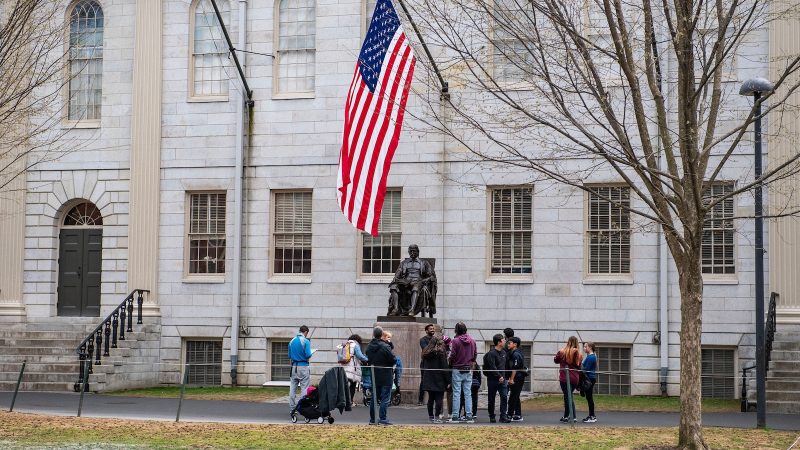
Harvard University, a prestigious institution with a long history, found itself embroiled in a significant legal battle with the Trump administration in April 2025. The conflict stemmed from the administration’s threats to withhold billions of dollars in federal funding unless the university complied with a series of demands. This wasn’t just about money; it was a clash over academic freedom and the very principles of higher education in America.
The administration, through its Joint Task Force to Combat Antisemitism, accused Harvard of failing to adequately address antisemitism on campus. As a result, they initiated a funding freeze, initially targeting $2.2 billion in grants and $60 million in contracts. Further threats of a $1 billion cut to medical research funding were also made, escalating the situation dramatically. This drastic measure had the potential to severely impact vital research initiatives and the lives of numerous individuals.
Harvard President Alan Garber, in a strongly worded letter, rejected the administration’s demands, stating that the university would not compromise its independence or constitutional rights. He firmly asserted that the university would not surrender its autonomy to government interference in academic affairs. This stance led directly to the filing of a lawsuit in Massachusetts federal court.
The lawsuit argued that the administration’s actions were unlawful and exceeded its authority. Harvard’s legal team contended that the administration was using federal funding as leverage to control academic decision-making, a blatant violation of the First Amendment and existing federal law. They further highlighted the lack of any rational connection between concerns about antisemitism and the freezing of funds for unrelated research projects, including life-saving medical research.
The university also alleged that the Trump administration failed to adhere to the proper procedures outlined in the Civil Rights Act of 1964 before freezing the funding. This legal challenge aimed to overturn the funding freeze, prevent further cuts, and establish a precedent safeguarding universities from similar actions in the future.
Beyond the financial implications, this conflict raised fundamental questions about the relationship between government and higher education. Harvard’s actions were seen by many as a defense of academic freedom and the integrity of the research process. The case was not only about Harvard; it represented a broader fight for the autonomy of universities across the nation to conduct their research and education without undue political interference. The White House did not immediately respond to requests for comment, leaving the future of this significant legal battle uncertain.
This case highlights the ongoing tension between government oversight and academic independence. The outcome will undoubtedly have significant implications for universities across the United States and the future of federal funding for higher education and research.










